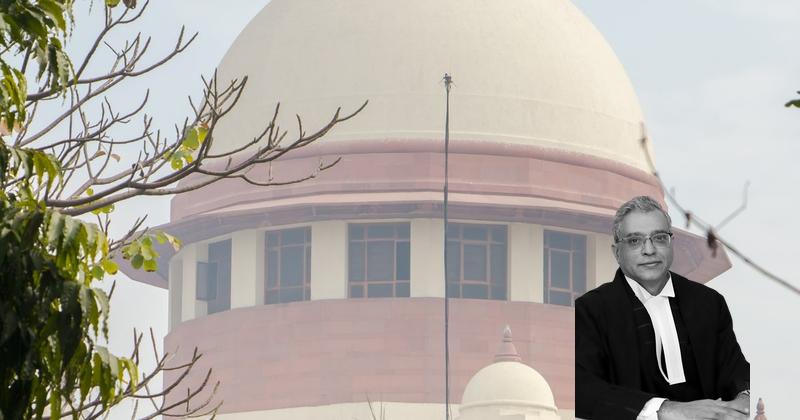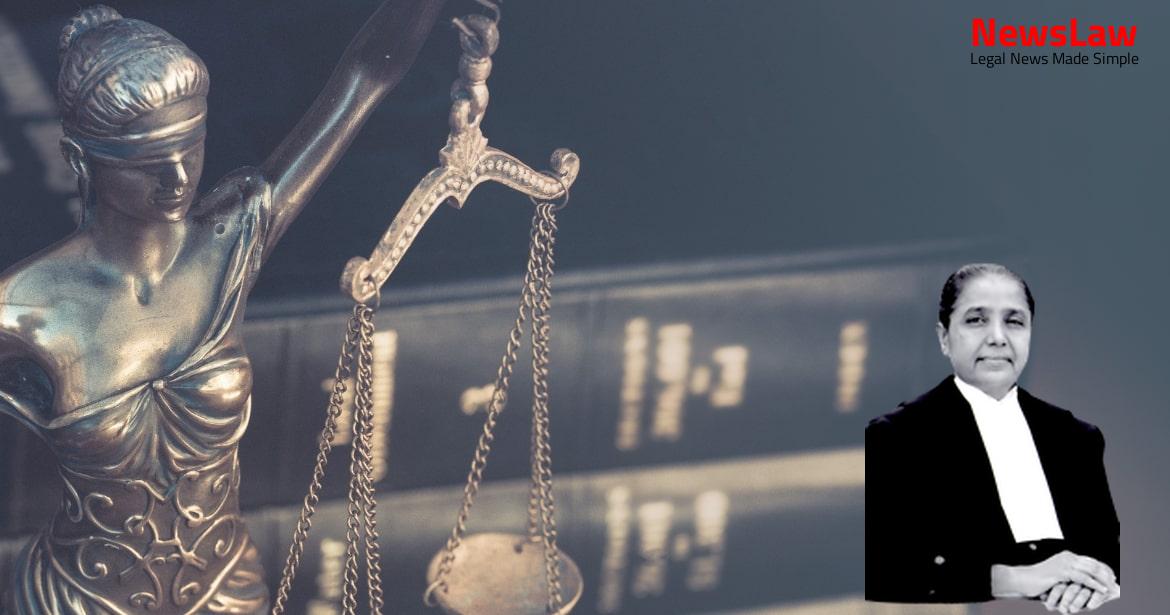The present appeal arises out of a decision of the High Court of Delhi, allowing the Respondent’s application under Section 11(6) of the Arbitration and Conciliation Act, 1996 for the constitution of an Arbitral Tribunal. By its letter dated 15.05.2019, SPML informed NTPC that the retention of Bank Guarantees, despite issuance of the Completion Certificate and the No-Demand Certificate, by linking them to some other projects, was unjustified. The prayer in the Writ Petition is to: “(a) Pass an appropriate Writ, Order or Direction quashing the e-mail dated 14.05.2019 issued by the Respondent insofar as it pertains to the release of the Bank Guarantees being (a) 0040ILG002609, (b) 0040ILG001109, (C) 0040ILG001209, (d) 0040ILG001309 and direct the Respondent to release the aforesaid Bank Guarantees forthwith, and (b) Pass any other order or such other orders as may be necessary in the interests of justice, equity and good conscience.” SPML withdrew the Writ Petition, as recorded in the Order of the Delhi High Court dated 21.09.2020. Acting under the Settlement Agreement, NTPC released the Bank Guarantees and SPML also proceeded to withdraw the Writ Petition, and therefore, there was discharge of the contract by accord and satisfaction. On the request for arbitration and the allegation of economic duress that allegedly prevailed in signing the Settlement Agreement, the High Court observed that: “ 66. After referring to the decisions of this Court in Mayavati Trading (P) Ltd. Submissions by the Parties: Shri Adarsh Tripathi, Advocate appearing with and on behalf of the Solicitor General, for NTPC, submitted that the Settlement Agreement dated 27.05.2020 was arrived at during the pendency of the Writ Petition before the High Court.
Also Read: https://newslaw.in/supreme-court/release-of-petitioner-based-on-juvenility-plea/
Shri Jaideep Gupta, Advocate appearing for the Respondent, SPML, has submitted that the legal principles governing an application under Section 11(6) of the Act are well-settled following the decisions of this Court in Mayavati Trading (supra) and Vidya Drolia (supra). Position of Law: In the present case, we are concerned with the pre-referral jurisdiction of the High Court under Section 11 of the Act and would like to underscore the limited scope within which an application under Section 11(6) of the Act has to be considered.
observed that when the validity of a discharge voucher, no-claim certificate or a settlement agreement is in dispute, the court must prima facie examine the credibility of the allegations before referring the parties to arbitration.
Taking cognizance of the legislative change, this Court in Duro Felguera (supra), noted that post the 2015 Amendments, the jurisdiction of the court under Section 11(6) of the Act is limited to examining whether an arbitration agreement exists between the parties – “nothing more, nothing less”. Accordingly, we hold that the expression “existence of an arbitration agreement” in Section 11 of the Arbitration Act, would include aspect of validity of an arbitration agreement, albeit the court at the referral stage would apply the prima facie test on the basis of principles set out in this judgment.
Ltd., (2005) 8 SCC 618] on the scope of judicial review by the court while deciding an application under Sections 8 or 11 of the Arbitration Act, post the amendments by Act 3 of 2016 (with retrospective effect from 23-10-2015) and even post the amendments vide Act 33 of 2019 (with effect from 9-8-2019), is no longer applicable. Scope of judicial review and jurisdiction of the court under Sections 8 and 11 of the Arbitration Act is identical but extremely limited and restricted. Rarely as a demurrer the court may interfere at Section 8 or 11 stage when it is manifestly and ex facie certain that the arbitration agreement is non-existent, invalid or the disputes are non-arbitrable, though the nature and facet of non-arbitrability would, to some extent, determine the level and nature of judicial scrutiny.
Also Read: https://newslaw.in/supreme-court/legal-analysis-of-circumstantial-evidence-in-a-murder-case/
Prima facie case in the context of Section 8 is not to be confused with the merits of the case put up by the parties which has to be established before the Arbitral Tribunal. Prima facie examination is not full review but a primary first review to weed out manifestly and ex facie non-existent and invalid arbitration agreements and non- arbitrable disputes. We would not like to be too prescriptive, albeit observe that the court may for legitimate reasons, to prevent wastage of public and private resources, can exercise judicial discretion to conduct an intense yet summary prima facie review while remaining conscious that it is to assist the arbitration procedure and not usurp jurisdiction of the Arbitral Tribunal.
In such cases a full review by the courts at this stage would encroach on the jurisdiction of the Arbitral Tribunal and violate the legislative scheme allocating jurisdiction between the courts and the Arbitral Tribunal. , the parties were referred to arbitration, as the prima facie review in each of these cases on the objection of non-arbitrability was found to be inconclusive.
Following the exception to the general principle that the court may not refer parties to arbitration when it is clear that the case is manifestly and ex facie non-arbitrable, in BSNL and Anr. As an exception to the rule, and rarely as a demurrer, the referral court may reject claims which are manifestly and ex-facie non-arbitrable. The prima facie scrutiny of the facts must lead to a clear conclusion that there is not even a vestige of doubt that the claim is non-arbitrable. Therefore, this Court or a High Court, as the case may be, while exercising jurisdiction under Section 11(6) of the Act, is not expected to act mechanically merely to deliver a purported dispute raised by an applicant at the doors of the chosen arbitrator, as explained in DLF Home Developers Limited v.
SPML sought the release of the final payment, and NTPC, by its letter dated 10.04.2019, agreed to release the same. Objecting to the stand of NTPC by its letter dated 15.05.2019, SPML stated that linking the Bank Guarantees with claims under other projects was unjustified.
The prayer is reproduced herein below for ready reference: “(a) Pass an appropriate Writ, Order or Direction quashing the e-mail dated 14.05.2019 issued by the Respondent insofar as it pertains to the release of the Bank Guarantees being (a)0040ILG002609, (b) 0040ILG001109, (c)0040ILG001209, (d) 0040ILG001309 and direct the Respondent to release the aforesaid Bank Guarantees forthwith,…” 35.
Case Title: NTPC LTD. Vs. M/S SPML INFRA LTD. (2023 INSC 334)
Case Number: C.A. No.-004778-004778 / 2022



